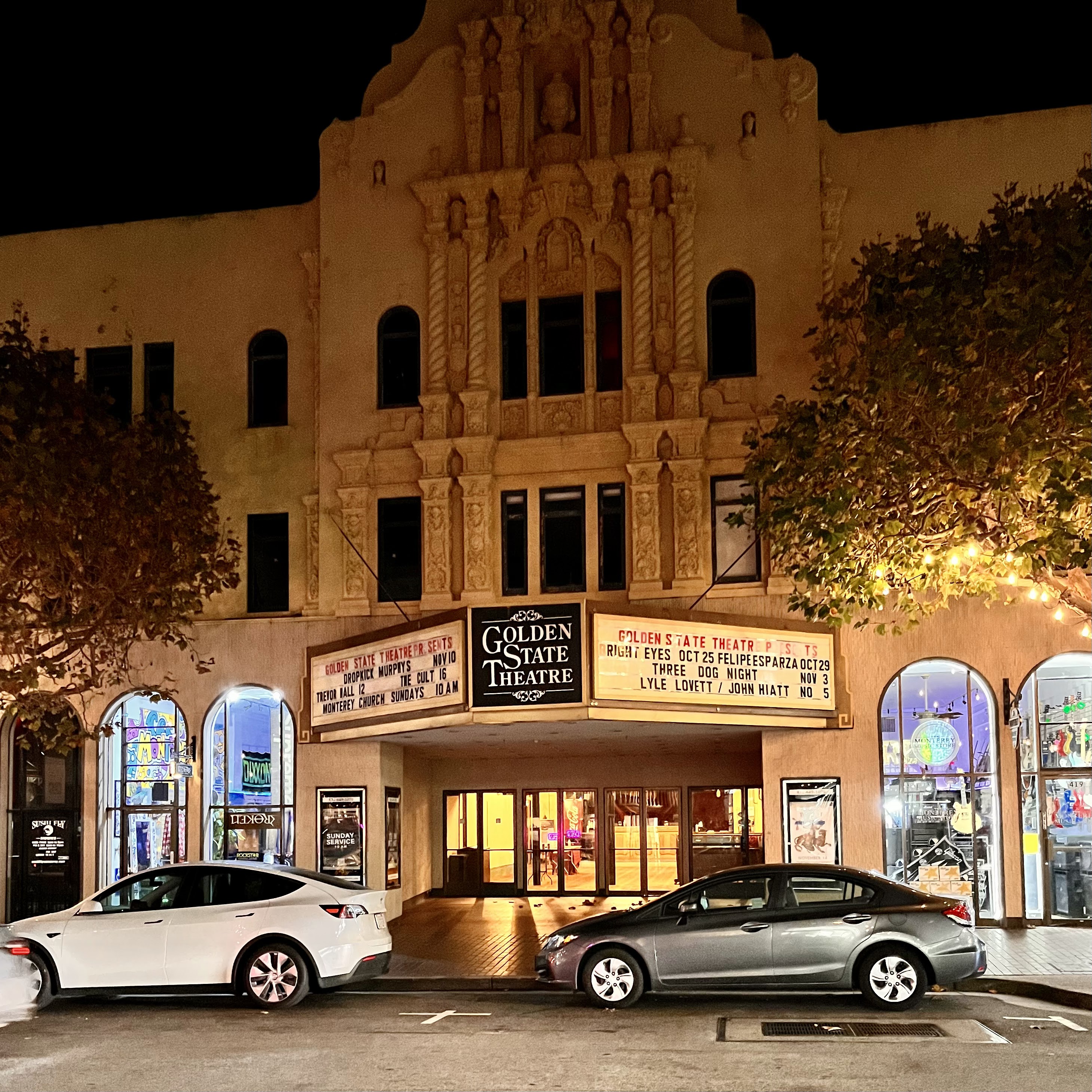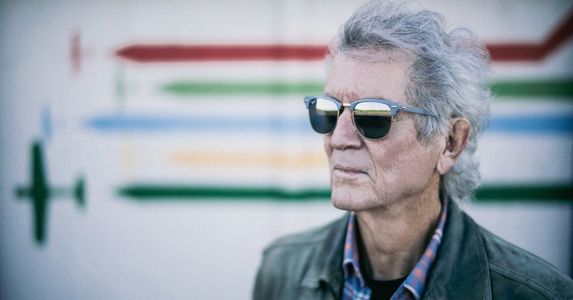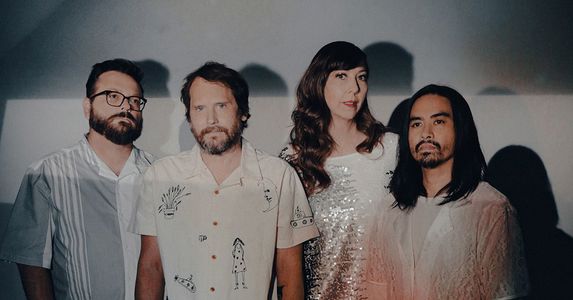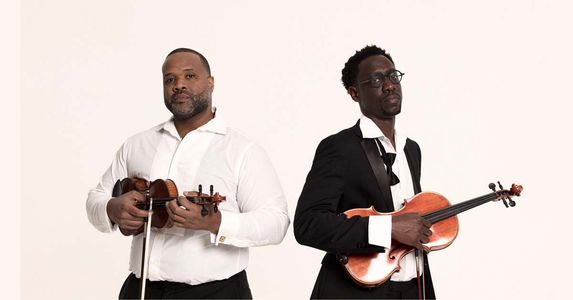03/09/2026, 07:30 PM PDTSilversun Pickups
Silversun Pickups’ sixth album Physical Thrills came together as a serendipitous accident during a dark time. The LA band began 2020 by touring in support of their record released the previous year, Widow’s Weeds. But the pandemic halted those plans, with the members including guitarist and singer Brian Aubert, bassist Nikki Monninger, drummer Christopher Guanlao, and keyboardist Joe Lester, finding themselves stuck at home. In that resting period, Aubert wasn’t focused on Silversun Pickups; instead, he channeled his energy into taking care of his son, Nico, while his wife Tracy worked.
But as much as his focus initially shifted from the band, he couldn’t escape the new melodies germinating in his head. “I would sneak off and start writing these songs, and I didn’t know what they’re for because I didn’t really think about Silversun on any level. I was just doing it to keep myself calm and keep myself company,” says Aubert. The songs were so different from what he’d previously written for Silversun Pickups that he initially thought he was writing a musical. There were “dream shanties,” gentler vocals, horror-inspired sounds, and other exciting new elements coming to mind.
The band finally was able to gather in person for a live-streamed acoustic performance on Halloween for The Dark Zone Network’s virtual music festival Queen Mary, and it was there that Aubert revealed the new material to his bandmates. They readily embraced the new direction—and so did producer Butch Vig. The band reunited with Vig, who first worked with Silversun Pickups on Widow’s Weeds, recording the record at the famed producer and Garbage member’s home.
When Aubert first reached out to Vig, he wasn’t sure if the band was making an EP or a full record; Widow’s Weeds was still fresh for Silversun Pickups. But once Aubert made plans to visit Vig and play him what he had, the music began pouring out. He immediately began recording with Vig, later having the rest of the band join.
Once the band began working on Physical Thrills together, they made some of Silversun Pickups’ most stunning songs yet. The record doesn’t depart drastically from the sound the band’s fans know and love, but rather enhances it with previously-unexplored fixtures at play.
Physical Thrills was colored by the pandemic, but isn’t meant to be solemn; instead, Aubert explores his own comfort in the temporary, newfound isolation. There’s a juxtaposition of playfulness with angst from having so much time to process untapped emotions. That’s something that comes through in the album’s instrumentation, too, with wide-ranging sounds that transform according to the weight of the lyrics.
There are tracks with shoegaze-infused distorted synths and guitar, like opener “Stillness (Way Beyond)”; bouncy, pop-tinged danceable tunes (“Empty Nest,” “Hereafter (Way After)”); pared-down ballads (“Alone On A Hill”); and a collection of “dream shanties,” as Aubert refers to them.
The titles of those shanties call back to “Dream At Tempo 119” off the band’s 2006 debut record, Carnavas, tying the band’s beginnings with the current, evolved iteration of Silversun Pickups. But, this time, the instrumentation matches the lyrics. Aubert forgoes the heavy guitars to instead create magical lullabies: “Dream At Tempo 050,” “Dream At Tempo 310,” and “Dream At Tempo 150.” Each carries a secret code in the title with numbers personal to Aubert.
With such an exploratory record, the band members felt free to traverse new ground. Guanlao, who usually shies away from fills on drums, took inspiration from The Beatles documentary Get Back, throwing some into Physical Thrills, influenced by Ringo Starr’s work on Let It Be. Whereas for Monninger, this record allowed her to showcase her vocals at the forefront more than in previous work. Joe also took a larger role in composition on this record, writing the piano part for “We Won’t Come Out,” which became the backbone for the song.
The making of Physical Thrills also allowed for whimsical moments, including Aubert creating a distinct tapping noise by incorporating the sound of drumsticks hitting Vig’s Grammy in “Hidden Moon,” and playfully pelting balloons at Monninger while she played “Hereafter (Way After)” on bass to create less tension.
While this record features such an eclectic mix of melodies, each song is interconnected with each other, meant to be experienced as a whole body of work. “All of our records are designed for people who want to listen to them all the way through and hopefully stick around with it,” says Aubert. “After a while, maybe you’ll catch on to the little things—not just the [pattern of] the dream songs, but maybe you’ll hear that, and you’ll hear a melody from the first song in the last song. There are crossover things happening.”
Lester says, “Physical Thrills is exactly the record that we wanted to make, which I’m really stoked about because sometimes you look back and think, ‘Well, that’s maybe not exactly how we would have done it’ when you go back and listen to it years later.’ But I feel really proud of this one. I think the songs that Nikki sings on are like the best ones we’ve done for her to sing on. The lyrics are better than they’ve ever been.”
Monninger adds, “We’ve been together for twenty-two years; it’s really interesting that we still love doing this. We know that we’re fortunate to still be together after all these years, seeking out the silver lining. I feel like we still have many more things to say, and we’re so happy with how this album turned out.”










